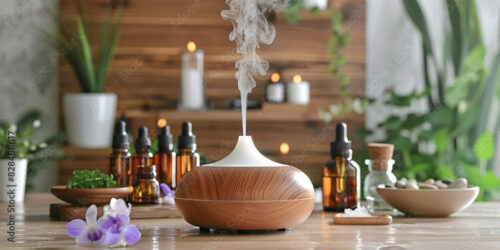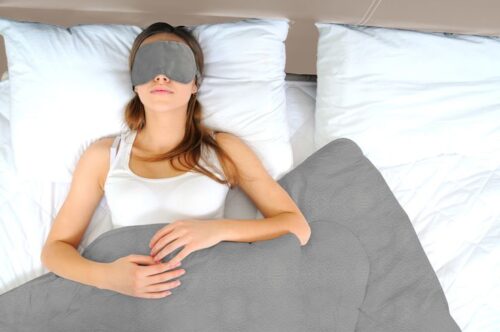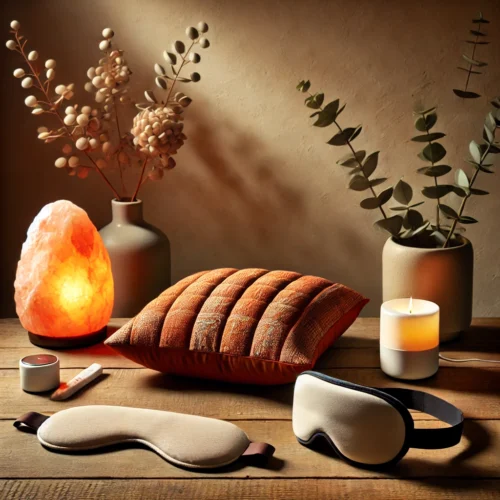Table of Contents
ToggleIntroduction to Stress Management for a Peaceful Lifestyle
Start living stress-free today by exploring practical, proven strategies that can help restore peace and improve all aspects of life.
In today’s fast-paced world, learning how to manage stress for a peaceful living has become more crucial than ever. From juggling work responsibilities to navigating personal relationships, the demands of daily life can often leave us feeling overwhelmed and drained. Stress, while a natural response to challenges, can wreak havoc on our mental and physical health if left unchecked.
But imagine a life where stress no longer dictates your mood or energy levels—a life where you feel calm, focused, and in control. Achieving this balance is not just a dream; it’s a possibility within your reach. With the right tools and habits, you can transform how you handle stress and create a lifestyle that prioritizes peace and well-being.
This blog is your guide to managing stress effectively. From identifying triggers and practicing relaxation techniques to adopting long-term habits, we’ll explore actionable strategies that fit seamlessly into your daily routine. Whether you’re seeking better sleep, improved health, or stronger relationships, these techniques can help you build the foundation for a more harmonious life.
Take the first step toward stress-free living today. Let’s dive into practical, proven methods that will empower you to reclaim your peace and thrive in every area of life.
How Can Stress Be Treated?
Stress is your body’s response to any challenge or demand placed upon it. It prompts its “fight or flight” response by producing adrenaline and cortisol. These hormones enable quick responses by raising heart rate, sharpening concentration, and providing an energy boost—useful responses in an emergency, but overdoing them could upset your body’s balance and harm your functioning.
Biological Components: Stress affects the hypothalamus (the HPA-axis), pituitary gland, and adrenal gland. Chronic activation may lead to inflammation and other health concerns.
Emotional Components: Stress can disrupt mood and lead to feelings of anxiety, irritability, or overwhelm.
The TwoMain typess of Stress
Acute Stress: Short-term stress that arises when an immediate challenge presents itself, like meeting a deadline.
Chronic stress: Prolonged anxiety resulting from persistent problems like financial instability or toxic workplace environments.
Common Causes of Stress
- Workload: Deadlines, long hours, and high expectations.
- Financial Pressures: Managing expenses or debts.
- Health Concerns: Chronic illness or medical uncertainty.
- Relationship Challenges: Conflicts with family, friends, or partners.
Modern life also introduces societal stressors, such as technology overload. Notifications, constant connectivity, and information fatigue can amplify stress levels.
Effects of Stress on the Body and Mind:
- Physical Issues: Chronic stress can cause insomnia, headaches, digestive problems, and even heart disease.
- Emotional Toll: It leads to irritability, lack of focus, and burnout, making it difficult to maintain emotional stability and productivity.
For more insights, explore resources on stress and its management.
By understanding the roots and impacts of stress, you can take proactive steps toward managing it effectively and improving overall well-being
Quick Review on Stressmanagement Products
| Name of the Product | Special Features | Benefits | Rating (Out of 5) |
|---|---|---|---|
| Essential Oil Diffuser | Disperses therapeutic oils with customizable mist and light settings. | Promotes relaxation, improves sleep, and enhances focus. | 4.8 |
| Aromatherapy Candles | Infused with essential oils; provides soft lighting for a serene ambiance. | Reduces anxiety and creates a calming environment. | 4.5 |
| Roll-On Essential Oils | Portable, pre-blended oils for direct application on pulse points. | Provides instant stress relief and boosts mood on the go. | 4.6 |
| Weighted Blanket | Evenly distributed weight for gentle pressure therapy. | Reduces anxiety, improves sleep quality, and lowers stress levels. | 4.7 |
| Eye Mask (Silk or Cooling Gel) | Blocks out light; cooling versions soothe tired eyes. | Enhances sleep quality, reduces puffiness, and promotes relaxation. | 4.5 |
| Noise-Canceling Headphones | Active noise cancellation with comfortable design. | Blocks distractions, enhances focus, and supports mindfulness practices. | 4.8 |
| Foam Roller | High-density foam for self-myofascial release. | Relieves muscle tension, improves circulation, and enhances recovery. | 4.4 |
| Massage Gun | Percussive therapy with adjustable speed settings. | Alleviates soreness, relaxes muscles, and boosts circulation. | 4.7 |
| Resistance Bands | Offers varying resistance levels for strength and flexibility exercises. | Encourages physical activity, improves posture, and releases endorphins for stress relief. | 4.5 |
| Himalayan Salt Lamp | Emits a warm glow; believed to improve air quality via ionization. | Creates a calming ambiance and may enhance respiratory health. | 4.6 |
| Meditation Cushion | Ergonomic design with firm support for prolonged meditation sessions. | Supports posture and enhances comfort during mindfulness practices. | 4.6 |
| White Noise Machine | Generates calming sounds like ocean waves or rain. | Masks disruptive noises, improves sleep, and reduces stress. | 4.8 |
| Portable Neck Massager | Compact design with heat and vibration functions. | Relieves neck tension and provides on-the-go stress relief. | 4.7 |
Practical Strategies for Managing Stress
Managing stress requires a combination of self-awareness, healthy habits, and a supportive environment. These practical strategies are designed to help you tackle stress and build a foundation for long-term well-being. By becoming aware of your stressors, you can proactively address them, whether by adjusting your environment or changing your reaction.
1. Identify Your Stressors
The first step in managing stress is understanding what triggers it. Without identifying the root causes, it’s impossible to develop effective coping mechanisms.
Create a Stress Diary
Keep a journal to document stressful moments throughout your day. Note the situation, your emotional response, and any physical symptoms. Over time, this diary will reveal patterns and recurring stressors.
Reflect on Patterns
Use the diary to analyze how specific triggers, like tight deadlines or interpersonal conflicts, impact your mood and productivity. For example, if you notice stress spikes after checking emails, consider limiting notifications or setting designated times to respond.
RELATED: How Stress Affects Your Body, From Your Brain to Your Digestive System
Stress Management with Best Accessories
Accessories play a vital role in creating an environment that promotes relaxation and stress relief.
1. Aromatherapy Accessories
Aromatherapy have become popular tools for promoting relaxation and stress relief. By harnessing the power of natural scents, these products create a calming environment, enhance mindfulness, and provide portable solutions for managing anxiety.

Special Features
Roll-On Essential Oils: Portable solutions with pre-blended oils for immediate stress relief on pulse points.
Essential Oil Diffusers: Disperse therapeutic oils like lavender or eucalyptus into the air with customizable mist and light settings.
Aromatherapy Candles: Infused with essential oils, these candles release calming scents while creating a warm ambiance.
Benefits
- Stress Relief: Scents like lavender reduce cortisol levels, promoting a sense of calm.
- Improved Focus: Citrus-based oils like lemon and orange enhance concentration.
- Better Sleep: Scents like chamomile improve sleep quality by relaxing the nervous system.
Pros and Cons
- Pros: Easy to use, versatile options for home or travel, and a natural alternative to stress relief.
- Cons: Some oils may trigger allergies; candles need monitoring for safety; and high-quality essential oils can be pricey.
2. Relaxation Tools
Relaxation tools create a serene environment for mental and physical unwinding.

Special Features
- Weighted Blankets: Use gentle, even pressure to mimic a soothing hug, reducing anxiety and promoting better sleep.
- Eye Masks (Silk or Cooling Gel): Block out light and offer cooling effects to reduce puffiness and encourage relaxation.
- Noise-Canceling Headphones: Eliminate distractions and provide an immersive experience for mindfulness practices or calming sounds.
Benefits
- Stress Reduction: Helps relax the mind and body, lowering stress hormones.
- Better Sleep Quality: Tools like weighted blankets and eye masks create an optimal sleep environment.
- Enhanced Focus: Noise-canceling headphones aid concentration for meditation or work.
Pros and Cons
- Pros: Simple to use, long-lasting, and highly effective for creating peaceful moments.
- Cons: Weighted blankets and high-quality headphones can be expensive; cooling masks require maintenance for cleanliness.
3. Physical Wellness Accessories
Physical wellness products address stress by promoting movement, muscle recovery, and relaxation.
Special Features
- Foam Rollers: Relieve muscle tension through self-myofascial release, targeting knots and stiffness.
- Massage Guns: Use percussive therapy to reduce soreness, improve circulation, and relax tight muscles.
- Resistance Bands: Offer low-impact exercises to improve strength and flexibility, perfect for at-home stress relief.
Benefits
- Improves Circulation: Tools like massage guns and foam rollers boost blood flow, promoting muscle recovery.
- Encourages Movement: Resistance bands motivate physical activity, which releases stress-relieving endorphins.
- Alleviates Tension: Reduces the physical symptoms of stress, like tight shoulders or back pain.
Pros and Cons
- Pros: Effective for physical stress relief, portable, and easy to incorporate into daily routines.
- Cons: Advanced tools like massage guns can be costly; foam rollers require proper techniques to avoid injury.
4.Digital and Productivity Tools for Stress Management
In today’s fast-paced world, digital and productivity tools play a crucial role in managing stress and staying organized. From streamlining daily tasks to reducing distractions, these tools empower users to achieve a balanced and focused lifestyle. Here’s an in-depth look at their special features, benefits, and pros and cons.
Special Features
1.Productivity Planners and Apps
- Task Prioritization: Helps users categorize tasks by urgency and importance.
- Reminders and Deadlines: Keeps track of critical dates to avoid last-minute stress.
- Cross-Device Syncing: Integrates across smartphones, tablets, and computers for accessibility.
2.Time-Tracking Apps
- Detailed Analytics: Provides insights into how time is spent, identifying inefficiencies.
- Pomodoro Timers: Encourages work-break intervals for sustained focus and reduced fatigue.
3.Blue-Light Blocking Glasses
- Eye Strain Reduction: Filters harmful blue light emitted by screens
- Enhanced Sleep Quality: Reduces screen-induced disruptions to the circadian rhythm.
- Stylish and Comfortable: Combines function with fashion for everyday wear.
Benefits of Digital and Productivity Tools
1.Reduces Overwhelm
Planners and apps break down tasks into manageable steps, decreasing anxiety about workloads.
2.Encourages Work-Life Balance
Time trackers and reminders ensure you allocate time for relaxation and self-care.
3.Enhances Focus
Distraction-blocking features on apps like Forest or Focus@Will help maintain concentration during work or study.
4.Supports Physical Wellness
Blue-light blocking glasses prevent headaches and eye strain, improving comfort during prolonged screen use.
5..Increases Productivity
Smart tools automate repetitive tasks, freeing up mental bandwidth for creativity and decision-making.
Pros and Cons of Digital and Productivity Tools
Pros
- Customizable Features: Tools can be tailored to individual needs and preferences.
- Wide Accessibility: Available on multiple platforms and often affordable or free.
- Improved Accountability: Promotes consistency in tracking and completing tasks.
- Multifunctional: Combines stress management with productivity improvements.
Cons
- Learning Curve: Some tools require time to master, especially feature-rich apps.
- Dependence on Technology: Over-reliance may lead to stress if technical issues arise.
- Initial Investment: Quality blue-light glasses or premium app subscriptions can be costly.
- Screen Time Overload: Increased use of digital tools may inadvertently contribute to stress for some users.
Mindfulness Aids:
Stress management tools come in many forms, tailored to address various aspects of daily life. Below is a detailed exploration of mindfulness aids, home comfort accessories, portable stress relievers, and sleep-enhancing tools—key categories that contribute to a calmer, more balanced lifestyle.
5. Mindfulness Aids
Mindfulness aids help users develop awareness, focus, and a sense of calm through meditation and reflective practices.
Special Features
- Meditation Cushions: Ergonomically designed for long meditation sessions, offering lumbar support and comfort.
- Gratitude Journals: Structured prompts to help users reflect on positive aspects of their day.
- Mindfulness Apps: Tools like Calm or Headspace offer guided meditations, breathing exercises, and mindfulness programs.
Benefits
- Reduces anxiety by anchoring thoughts in the present moment.
- Enhances focus and emotional regulation.
- Encourages a consistent mindfulness routine.
Pros and Cons
- Pros: Portable, beginner-friendly, and highly effective for emotional well-being.
- Cons: Some products, like premium apps or high-quality cushions, can be costly.
6. Home Comfort Accessories
Home comfort accessories are designed to create a serene, cozy environment for relaxation and stress relief.
Special Features
- Himalayan Salt Lamps: Emit a warm glow while purifying air through ionization.
- Indoor Plants: Boost mood and improve indoor air quality.
- Comfort Items (Robes and Slippers): Made from soft materials to provide ultimate relaxation.
Benefits
- Creates a calming ambiance conducive to stress relief.
- Promotes a sense of security and comfort at home.
- Improves overall aesthetics, making spaces more inviting.
Pros and Cons
- Pros: Long-lasting, easy to integrate into any space, and multi-functional.
- Cons: Maintenance is required for certain items, like cleaning lamps or caring for plants.
7. Portable Stress Relievers
Portable stress relievers provide quick, on-the-go solutions for managing anxiety in any environment.

Special Features
- Stress Balls: Help release tension through repetitive squeezing.
- Fidget Cubes or Spinners: Aid in maintaining focus and relieving stress through tactile stimulation.
- Portable Neck Massagers: Compact devices offering tension relief through heat or vibration therapy.
Benefits
Enhances focus and concentration.
Immediate relief from stress, particularly in high-pressure situations.
Easy to carry, making them ideal for work or travel.
Pros and Cons
- Pros: Affordable, lightweight, and effective for short-term stress management.
- Cons: Limited scope—best suited for mild stress rather than chronic anxiety.
8. Sleep-Enhancing Accessories
Sleep-enhancing tools are invaluable for addressing insomnia and improving the quality of rest, which is essential for stress recovery.
Special Features
- White Noise Machines: Generate soothing sounds, like ocean waves or rain, to mask disruptive noises.
- Weighted Sleep Masks: Combine light-blocking with gentle pressure for deep relaxation.
- Cooling Pillows: Use gel or breathable materials to regulate temperature and enhance comfort.
Benefits
- Helps users fall asleep faster and achieve deeper, restorative sleep.
- Promotes a healthy sleep cycle, which is critical for stress resilience.
- Improves mood, energy levels, and cognitive function.
Pros and Cons
- Pros: Widely available, versatile, and effective for improving sleep hygiene.
- Cons: May require trial and error to find the right product for individual preferences.
Conclusion: Your Path to Stress-Free Living
Stress management is not just about tackling anxiety or overcoming challenges—it’s about creating a balanced lifestyle that fosters peace, mindfulness, and well-being. By incorporating tools like aromatherapy accessories, relaxation aids, physical wellness products, and digital solutions, you can effectively address the physical and emotional effects of stress. Whether it’s calming your mind with essential oils, relieving tension with a massage gun, or improving sleep with weighted blankets, these tools are practical, accessible, and designed to improve your quality of life.
Living peacefully is a journey that requires consistent effort and the right strategies. With the products and techniques shared in this guide, you can take meaningful steps toward achieving a more harmonious and fulfilling life.
Call to Action
Start your stress-free journey today! Explore one new tool or practice this week—try a weighted blanket for better sleep, add a Himalayan salt lamp to your workspace, or start your day with a mindfulness session using a meditation cushion.
Take the first step toward reclaiming your peace. Visit our curated collection of stress-management solutions here, and discover the perfect tools to transform your daily life.
Remember: Peaceful living starts with small, intentional actions.



